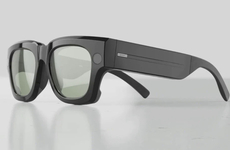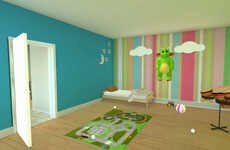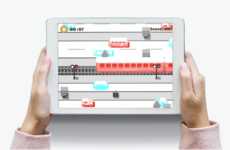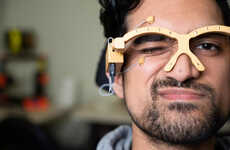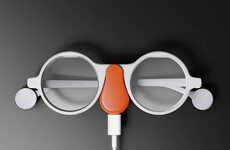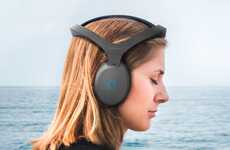
The Brain Power Autism System Has Gamified Life Skills Training
Ellen Smith — October 12, 2017 — Lifestyle
References: brain-power & telemedmag
The Brain Power Autism System is leveraging aspects of augmented reality and artificial intelligence to encourage those with autism to make eye contact and better recognize the emotions of others.
Through the implementation of a google-made wearable, the company has effectively gamified the teaching of practical life skills. The device is a simple unobtrusive pair of glasses that are equipped with Brain Power's 3D motion sensing technology. The glasses task the wearer to make eye contact with their peers, rewarding the user with a numerical point system, every time they make and hold eye contact. In addition, the glasses enable the wearer to unlock various gold stars and cartoon figures for accurately guessing a peer's emotions.
This immersive and entertaining device has shown significant results among the autistic community through providing the user with immersive assistive experience and education.
Through the implementation of a google-made wearable, the company has effectively gamified the teaching of practical life skills. The device is a simple unobtrusive pair of glasses that are equipped with Brain Power's 3D motion sensing technology. The glasses task the wearer to make eye contact with their peers, rewarding the user with a numerical point system, every time they make and hold eye contact. In addition, the glasses enable the wearer to unlock various gold stars and cartoon figures for accurately guessing a peer's emotions.
This immersive and entertaining device has shown significant results among the autistic community through providing the user with immersive assistive experience and education.
Trend Themes
1. Augmented Reality for Autism - The use of augmented reality technology to assist and train individuals with autism in life skills and social interactions.
2. Gamification of Autism Education - Applying game mechanics to the teaching of practical life skills and emotional recognition for those with autism.
3. Wearable Technology for Autism - Utilizing wearable devices, such as smart glasses, to enhance and personalize the learning experience for individuals with autism.
Industry Implications
1. Healthcare Technology - Developing innovative technology solutions for autism therapy and education.
2. Edtech (education Technology) - Integrating technology into special education programs to provide personalized learning experiences for individuals with autism.
3. Wearable Technology - Creating wearable devices specifically designed to assist people with autism in improving their social skills and emotional recognition.
4.6
Score
Popularity
Activity
Freshness




